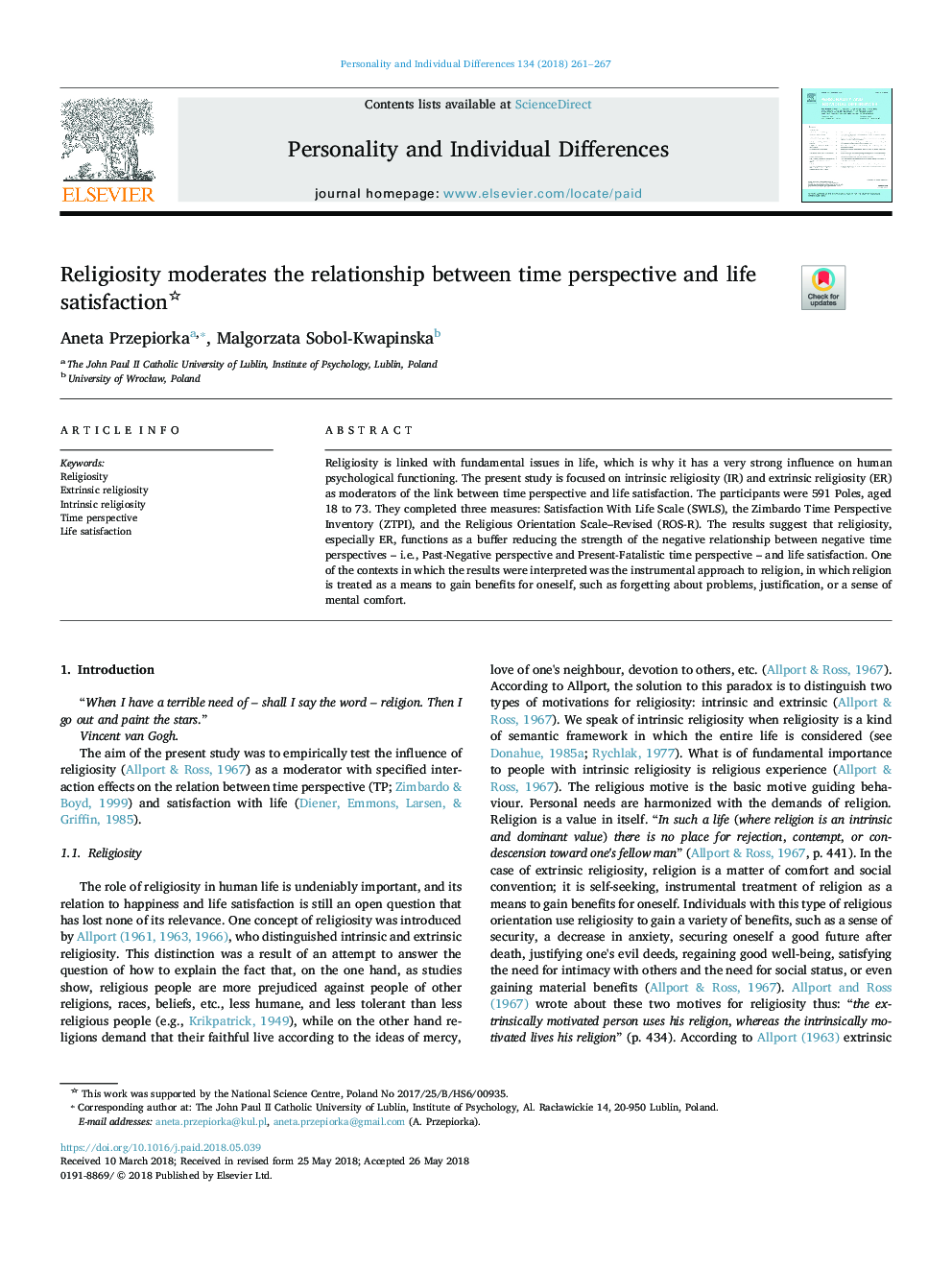| Article ID | Journal | Published Year | Pages | File Type |
|---|---|---|---|---|
| 7248459 | Personality and Individual Differences | 2018 | 7 Pages |
Abstract
Religiosity is linked with fundamental issues in life, which is why it has a very strong influence on human psychological functioning. The present study is focused on intrinsic religiosity (IR) and extrinsic religiosity (ER) as moderators of the link between time perspective and life satisfaction. The participants were 591 Poles, aged 18 to 73. They completed three measures: Satisfaction With Life Scale (SWLS), the Zimbardo Time Perspective Inventory (ZTPI), and the Religious Orientation Scale-Revised (ROS-R). The results suggest that religiosity, especially ER, functions as a buffer reducing the strength of the negative relationship between negative time perspectives - i.e., Past-Negative perspective and Present-Fatalistic time perspective - and life satisfaction. One of the contexts in which the results were interpreted was the instrumental approach to religion, in which religion is treated as a means to gain benefits for oneself, such as forgetting about problems, justification, or a sense of mental comfort.
Related Topics
Life Sciences
Neuroscience
Behavioral Neuroscience
Authors
Aneta Przepiorka, Malgorzata Sobol-Kwapinska,
